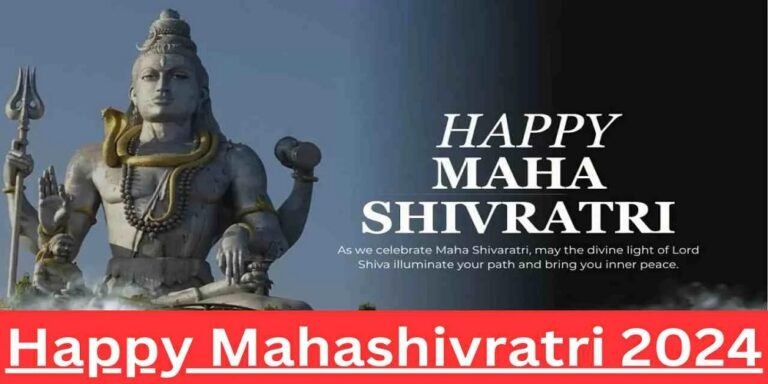The Significance of Mahashivratri: Celebrating the Divine Union and Lord Shiva’s Triumph

Mahashivratri, a highly revered Hindu festival, holds immense significance as it commemorates the divine union of Lord Shiva and Goddess Parvati and symbolizes the triumph of good over evil. Celebrated on the 14th day of the first half of the lunar month of Phalguna, Mahashivratri is a joyous occasion that brings people from all corners of the world together to honor Lord Shiva.
The Story Behind Mahashivratri
According to Hindu mythology, Mahashivratri marks the day when Lord Shiva saved the world from destruction. The gods and demons were engaged in a fierce battle, which lasted for thousands of years. The gods, fearing defeat, approached Lord Shiva for help. In response to their plea, Lord Shiva consumed the poison that emerged from the churning of the cosmic ocean, thereby saving the world from annihilation.
Furthermore, Mahashivratri also signifies the day when Lord Shiva and Goddess Parvati tied the auspicious knot of marriage. After years of penance and devotion, Goddess Parvati won the heart of Lord Shiva, and their union symbolizes the divine balance between masculine and feminine energies.
The Spiritual Significance
Mahashivratri holds profound spiritual significance for devotees of Lord Shiva. It is believed that on this auspicious day, the planetary positions align in a way that facilitates spiritual growth and transformation. Devotees engage in fasting, meditation, and prayer to seek blessings and enlightenment from Lord Shiva.
By observing a fast on Mahashivratri, devotees purify their mind, body, and soul. The act of fasting is seen as a means of self-control and discipline, allowing individuals to detach from worldly desires and focus on their spiritual journey. Many devotees also stay awake all night, engaging in prayers and chanting the sacred mantra “Om Namah Shivaya,” which is believed to invoke the divine presence of Lord Shiva.
The Rituals and Celebrations
Mahashivratri is celebrated with great enthusiasm and fervor across the globe. Devotees visit temples dedicated to Lord Shiva and offer prayers, flowers, and fruits. They perform elaborate rituals, such as bathing the Shiva Linga with milk, honey, and water, symbolizing purification and devotion.
The night of Mahashivratri is adorned with vibrant processions, where devotees carry idols of Lord Shiva and Goddess Parvati, accompanied by music and dance. The atmosphere is filled with joy, as people come together to celebrate the divine energy and seek blessings for a prosperous life.
Another significant aspect of Mahashivratri is the consumption of bhang, a traditional drink made from cannabis. It is believed to be Lord Shiva’s favorite offering and is consumed by devotees in moderation as a means of spiritual elevation and connection with the divine.
The Universal Message
Mahashivratri transcends religious boundaries and conveys a universal message of unity, love, and devotion. It reminds us of the importance of balancing our inner energies and embracing the divine qualities within ourselves.
By celebrating Mahashivratri, we are reminded of the power of perseverance, as Lord Shiva’s unwavering devotion to Goddess Parvati serves as an inspiration to overcome obstacles and achieve success in our own lives.
In Conclusion
Mahashivratri is a festival that holds immense significance in the Hindu calendar. It not only celebrates the divine union of Lord Shiva and Goddess Parvati but also serves as a reminder of the triumph of good over evil and the importance of spiritual growth and transformation.
As devotees come together to observe fasting, perform rituals, and seek blessings, Mahashivratri becomes a time of introspection and renewal. It is a celebration that unites people from different backgrounds and cultures, fostering a sense of unity and devotion towards the divine.